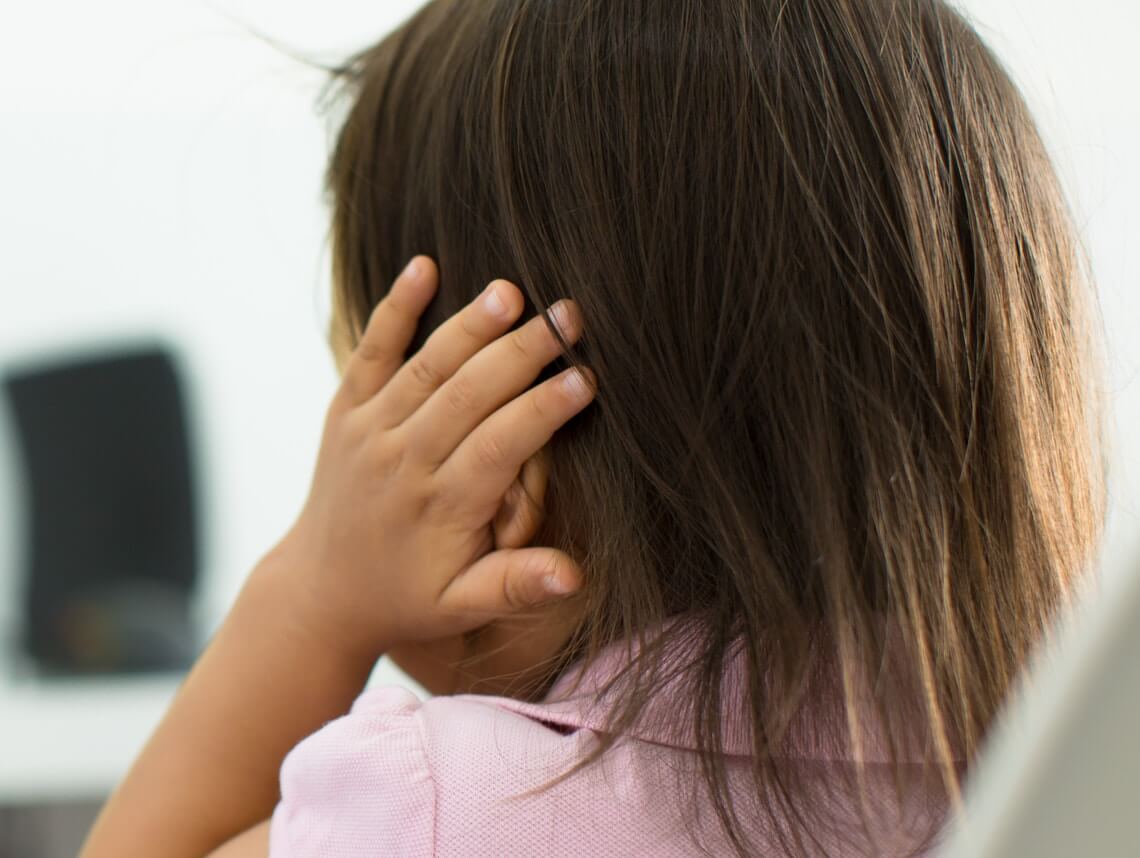It’s common knowledge that children sometimes get ear infections. This is due to their ear canal being small and still in development. However, this doesn’t mean that it gets any easier to see your baby in pain. And when you hear unfamiliar terms around whatever may be ailing their little ears, things can get even more worrisome. Such is the case with glue ear. What is it? Why is it called that? What are the symptoms? And what can you do to make your little one feel better?
What is glue ear?
When a child is healthy, their ear canal is empty. However, if they experience the common cold, a virus, or severe allergies, fluid can accumulate inside it. Glue ear occurs when this fluid becomes very thick — almost the same consistency as glue. Hence its name. It can affect one or both ears.
In addition to the fluid buildup, the health condition that’s causing it in the first place can also cause your child’s eustachian tube to become swollen. This increases the pressure and overall discomfort in your child’s ears. That said, glue ear is different from an ear infection because it doesn’t result in the intense pain that comes with the latter.
If your child suffers from recurring glue ear — or if the condition lasts for several months — their pediatrician will refer them to a specialist. This is done to determine whether your child is experiencing any hearing loss and whether there’s an underlying medical condition that’s causing it.
Symptoms of Glue Ear in Children
When a child has glue ear, you’ll notice difficulties communicating with others. Common signs of the ailment include:
- Speaking louder than usual
- Watching TV at a louder volume
- Can’t hear sounds from far away that they should be able to hear
- They frequently ask people to repeat themselves
- Mishearing things
- Ringing or buzzing in their ears
- Irritability
- Tiredness
Diagnosis and Treatment of Glue Ear in Children
If your child’s hearing seems to be impaired, their pediatrician will use an instrument called an otoscope to look inside their ear canal. They may also conduct a tympanometry test. This is done by sending air pressure into the ear canal. If the eardrum is empty, it will move back and forth. However, if it’s filled with thick fluid, it will not move. The procedure is painless and the results show up in a graph called a tympanogram.
Once diagnosed, glue ear can be treated in several ways. These include:
1. Wait and See
Sometimes, glue ear doesn’t require treatment. Your child’s pediatrician may recommend to wait and see if it clears up on its own. In that case, you’ll have to monitor your child to see if their hearing improves as time goes on. If an infection caused the condition, the doctor may prescribe an antibiotic.
2. Autoinflation
Autoinflation consists of blowing up a special balloon while covering up one nostril. It can also include swallowing while pinching your child’s nose to keep the nostrils closed. This has to be done several times a day — although it’s not recommended in children under three years of age.
3. Grommets
A grommet is a small tube that’s inserted into the child’s ear to drain the fluid that’s stuck in the eardrum. It also keeps the ear canal open to reduce the likelihood of more fluid accumulation. Surgery is necessary to complete the procedure. Eventually, as your child’s ear gets better, the grommet should fall out naturally within several months from insertion.
Contact Care Options for Kids for Home Health Care in Florida
It can be hard to balance your time between work, home, and caring for a loved one. That’s why our team of professionals at Care Options for Kids is here to help.
Our home health care services offer support in the comfort of your home. We refer loving and competent nurses to provide customized care for families — from a few hours a day to around-the-clock supervision. Contact us directly to speak with a home health care professional or request a free in-home assessment. Together we can determine the best plan of action to keep your loved ones happy and healthy.
If you or a loved one are considering pediatric home health care services in Florida, contact the caring staff at Care Options for Kids. Call today at (888) 592-5855.






